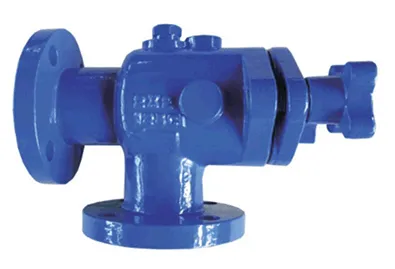10 月 . 12, 2024 04:08 Back to list
Exploring the Purpose and Benefits of a Strainer in Culinary Processes
The Essential Role of Strainers in Everyday Life
Strainers are often overlooked tools found in kitchens, laboratories, and various industrial settings. Despite their simplicity, they play a critical role in numerous processes, from cooking and brewing to chemical testing. Strainers are designed to separate solids from liquids, providing not only efficiency but also enhancing the quality of the final product.
In the culinary world, strainers come in various forms, including mesh strainers, colanders, and sieves. When cooking pasta, for example, the use of a colander is essential for draining the boiling water while retaining the noodles. This basic step is crucial because it prevents the pasta from becoming overcooked, ensuring the perfect texture for a delightful dish. Furthermore, strainers facilitate the preparation of soups and sauces by allowing chefs to remove unwanted solids, such as vegetable peels or herb stems, resulting in a smoother consistency and richer flavor.
Beyond the kitchen, strainers are indispensable in brewing processes. Whether in the home brewing of beer or the steeping of loose tea, strainers play a vital role in flavor extraction. In the case of brewing beer, a well-designed strainer allows the brewer to separate the grains from the liquid while extracting the sugars that will later ferment into alcohol. Similarly, in tea preparation, using a fine mesh strainer ensures that no leaves float in the cup, providing a clear and pleasant beverage.
Strainers are not limited to food-related tasks; they also serve significant functions in scientific and industrial applications. In laboratories, strainers and filters are used to separate particulates from liquids. This process is crucial for experiments where purity is paramount, such as in the preparation of chemical solutions or biological samples. A well-filtered solution prevents contamination, leading to more reliable results and conclusions.
strainer

In industrial settings, strainers are employed in various processes to enhance operational efficiency and protect machinery. For instance, in water treatment facilities, strainers are used to remove debris and sediments from water before it reaches pumps and filters. This preventative measure not only extends the lifespan of the equipment but also ensures the quality of the water being processed.
Another significant area where strainers are essential is in the automotive and aviation industries. Fuel strainers are installed in vehicles and aircraft to prevent debris from entering the fuel system, thus optimizing performance and safety. A blocked or contaminated fuel strainer can lead to engine failure, demonstrating how integral strainers are to maintaining functionality in critical systems.
Despite their unassuming nature, strainers are indeed powerful tools that enhance various aspects of daily life. From improving the quality of our food and beverages to ensuring the integrity of scientific experiments and industrial processes, they play an indispensable role. Their ability to separate and purify is a reminder of the importance of maintaining clarity and precision in our endeavors, whether in the kitchen or on a larger industrial scale.
In conclusion, the next time you find yourself using a strainer, take a moment to appreciate its significance. It is not merely a kitchen gadget but a versatile tool that transcends its simple appearance, playing a vital role in ensuring that our food is delicious, our beverages are enjoyable, and our scientific pursuits are fruitful. Strainers, in all their forms, truly reflect the intersection of utility and craftsmanship in our everyday lives.
Share
-
Understanding the Differences Between Wafer Type Butterfly Valve and Lugged Butterfly ValveNewsOct.25,2024
-
The Efficiency of Wafer Type Butterfly Valve and Lugged Butterfly ValveNewsOct.25,2024
-
The Ultimate Guide to Industrial Swing Check Valve: Performance, Installation, and MaintenanceNewsOct.25,2024
-
Superior Performance with Industrial Swing Check Valve: The Essential Valve for Any SystemNewsOct.25,2024
-
Industrial Swing Check Valve: The Ideal Solution for Flow ControlNewsOct.25,2024
-
You Need to Know About Industrial Swing Check Valve: Functionality, Scope, and PerformanceNewsOct.25,2024